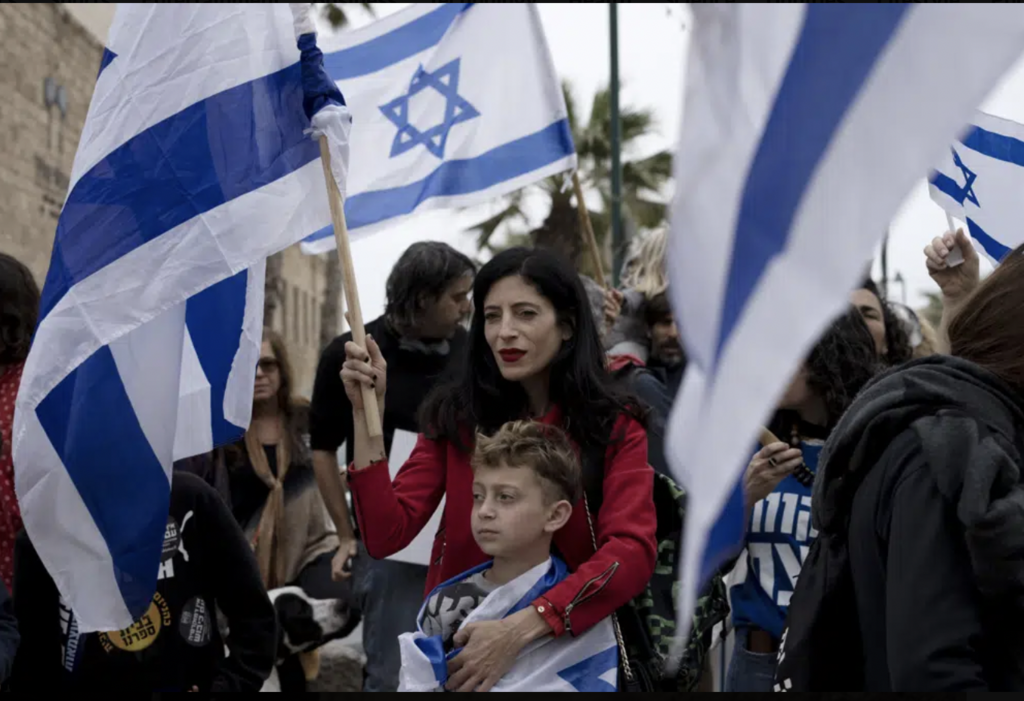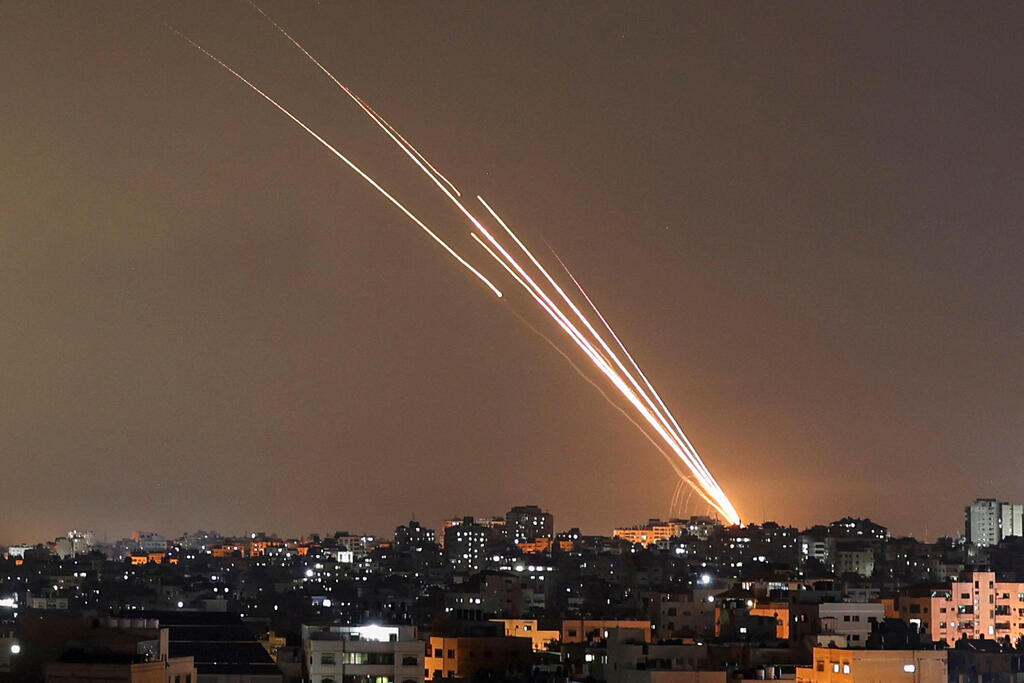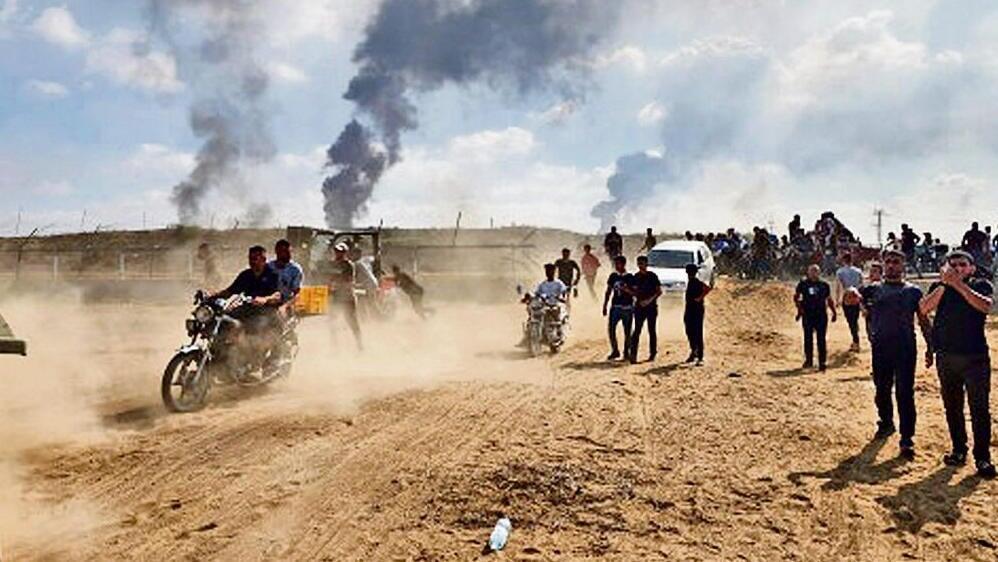On its very first day, the current war had already established itself as a milestone in the history of the Israeli-Palestinian conflict, and as a collective trauma that has brought the historical tension between the two communities to new heights. October 7th was the deadliest day the Zionist Movement has ever endured in its dispute with the Arab sphere, and the ensuing war has led to the highest number of Palestinian casualties in all their conflicts with Israel – or with their Arab brothers, for that matter – including the 1948 Nakba.
Read more:
The unprecedented magnitude of the war has generated a profound change in the hearts and minds of both sides. Its image has become that of an existential battle between the two communities. Israel frequently uses the memory of the Holocaust while questioning many previously prevalent paradigms about the nature of the Palestinian “other”, the roots of the conflict with it, and how it should be resolved.
The strong violent urges exhibited by Palestinians against Israelis as a whole on October 7, and, no less importantly, the lack of criticism and all-round disregard for the brutal massacres, going as far as to argue that they had never taken place, have led many Israelis to wonder whether this could really be the result of the occupation and economic gaps, or a burning animosity rooted deep within the Palestinian collective mindset.
They are not only “sobering up” from the possibility of making “peace” should the occupation end, but are also realizing that there is an enormous gap between the two communities with regard to moral values, truth, and human life, the ability to be empathetic toward others, and the power of self-criticism. This key lesson must be learned by the West as a whole: Multiculturalism has dark sides too that require acknowledgment of perceptual differences and the absence of a shared set of values.
Altering the image of the Palestinians in the minds of Israelis was a key objective pursued by Yahya Sinwar, the Leader of Hamas in Gaza. When he set out on the doomsday campaign that he had been laboring over for more than a decade, he strove to rattle and destabilize Israeli society by shocking, spreading insecurity, confusion and deep alienation among Israelis as well as between Israel’s citizens and leadership. Moreover, he sought to redefine the essence of the conflict, and reinforce the understanding among both communities that this is an existential battle or sum-zero game. And, indeed, the war has cast aside concepts such as coexistence and a political arrangement, creating instead an unprecedented blood score saturated with mutual feelings of despair and loathing.
This development evokes dark thoughts about the Palestinian National Movement and its relations with Israel. The ongoing war is the strongest blow ever to be delivered by the Palestinians to Israel. It is a demonstration of their steadfastness (Summud), and could lead to the release of the largest number of Palestinian prisoners from Israeli prison. Moreover, the Palestinians are priding themselves in the fact that, after many decades during which their status as the heart of the Middle East conflict seemed to have weakened, they have now returned to center stage, while proving their ability to destabilize the entire world: from Lebanon, through the Red Sea, to within western countries.
3 View gallery


A woman waves an Israeli flag at a demonstration in solidarity with Palestinians as part of ongoing protests against plans by Israeli Prime Minister Benjamin Netanyahu's government to overhaul the judicial system, in Jaffa, Israel, Thursday, March 23, 2023
(Photo: AP/ Maya Alleruzzo)
In contrast, not a single person in the Palestinian system has been heard wondering what prospects lay beyond these momentary accomplishments, when Gaza lies in ruins, the Israeli peace camp is going extinct, the concept of the two-state vision has become synonymous with a dangerous hallucination, and deep distrust toward Palestinians has seeped into Israeli society. Mahmoud Darwish, the Palestinian national poet, wrote a famous poem about that, arguing that the Palestinians will become a nation when they stop seeing themselves as angels, a victimized collective unable to be violent, and start to recognize that from their midst too emerge monsters that commit war crimes or are capable of internal political and social oppression.
In the hearts and minds of the Israeli collective, the war has led to two seemingly conflicting conclusions: One is the understanding that the cultural difference cannot enable stable life in a shared entity, meaning in a binational state. The second is the assumption that Palestinian independence poses an existential threat to Israel since it has now been proven that the extensive freedom enjoyed by Gazans following the Disengagement in 2005 was primarily utilized to accelerate a violent struggle, when it could have been dedicated to self-evolvement.
The war requires the Zionist enterprise to define and set a realistic goal that would ensure Israelis’ continuous safe and prosperous, as well as disillusioned, existence. Within it, ways of promoting broad physical separation between the two communities should be examined alongside means of preventing the existential threats posed by total Palestinian independence. All while ending the reliance or wait for the Palestinians’ decision as, at least at present, they are devoid of a willing leadership capable of making compromises by focusing on cultivating the here and now.
In this complex state of affairs, Israel may be forced to determine – unilaterally – the physical borders separating it from the Palestinians while ensuring long-lasting control over the gates between this entity and the world – the border area between the Gaza Strip and Egypt known as the "Philadelphi" Route, and the Jordan Valley. All while demilitarizing the Palestinian entity, and without having to discuss its political status (at least in the short range), let alone making decisions on issues such as Jerusalem and the refugees. Such a state of affairs would align with President Biden’s statement whereby there is a variety of sovereignties, as well as Netanyahu’s demand to have security control west of the Jordan River. This vision may not be very appealing, but in the Middle East, it is sometimes more important to be realistic than optimistic.
- Dr. Michael Milshtein is the Director of the Palestinian Studies Forum in Tel Aviv University’s Moshe Dayan Center




